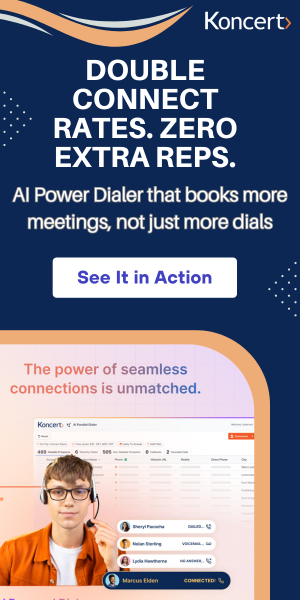7 min read
Qualifying Questions Sales Professionals Need to Ask
By: Joe Cronin on Mar 28, 2018 9:00:00 AM

Increase Sales and Protect Margins
The qualifying questions sales reps ask during the buying process can either deliver the revenue and margins you expect, or they can lead to lower revenue and painful margin compression or erosion. Margin erosion occurs when salespeople run out of time at the end of a month or quarter because they are working with prospects who are not fully qualified. It's an all too familiar story: management is forced to use discounts to bring in business from unqualified prospects just so sales teams can "make their number."
As a senior level manager or executive, you know there are certain qualifying questions sales reps should ask early in the buying process to identify a qualified prospect and avoid these end-of-cycle discounts. Sales reps and sales managers need to ask the right qualification questions to identify decision makers’ pain points so they can close the deal.
Learn sales outreach best practices. Read this blog.
Arm your sales teams with the right sales qualification criteria from the start and close more deals faster. We’ve discussed sales qualification in the past, but it’s time to take an updated look at which qualifying questions sales teams should ask.
Why Sales Qualification is a Critical Success Factor
Until you know exactly which qualifying questions sales professionals should ask, you’re just spinning their wheels. Not understanding what sales questions should be asked slows down the buying process, wasting critical sales resources on the wrong situations.
By targeting the right leads and providing the right qualifying questions, sales reps have a far better chance of closing more business. When you develop qualification criteria around your ideal prospect, you save time. By not devoting hours of resources on opportunities that are not likely to close in a reasonable time frame, you can focus on the most worthwhile deals. Additionally, you won't need to hire more people to close the same amount of deals.
How to Identify Your Ideal Prospect
One way to identify your ideal prospect is to look at existing clients and then model your qualification criteria around your best customers. Look at the industries, company sizes, and territories where your solution fits best and then develop a plan to go after those targets. Avoid trying to be “all things to all people” and zero in on prospects who fit your target customer profile.
Look for patterns that exist within your customer base. What traits do they have in common? Then, choose a few companies that best represent your ideal customer.
Find out who the decision maker was when they decided to do business with your company. More than likely, it is not the person with whom your company works with on a daily basis.
If possible, ask your current contact to bring the actual decision maker into a meeting. Use this opportunity to discuss why they chose you over a competitor. Also, take this time to see what could have been done better early on in the process. Was there information they had to work hard to obtain? Or were there any miscommunications that delayed closing the deal?
The Qualifying Questions Sales Should Be Asking
Once your sales reps have identified who to go after, these are the questions they need to ask prospects:
1. What business problem are you looking to solve?
Put another way, where is their pain? Without an identified problem where your prospect has a pain point, you are wasting your time (and theirs). Start with a prospect who has a business problem that your product or service is designed to solve.
Too often sale reps try to lead with a solution before they have identified and solidified that a real problem exists.
2. What are the consequences if you don’t solve the problem?
On a scale of 1 -10 is this problem a nuisance? Or will their world stop turning if they do not get this issue resolved in a timely manner?
Realistically, it is always somewhere in between. However, if it falls into the nuisance category, I suggest you invest your time in prospects who rate their problem a bit higher on the pain scale. Understanding what they expect to get out of your solution and the urgency of this problem helps you put their needs into perspective. It also tells you if you should schedule time in a few months when this problem is likely to be more of an issue for them.
3. Have you used a solution like this in the past?
Alternatively, is the prospect looking to implement this solution for the first time? This question helps you understand where they are in the process. After all, you’re making a different sale depending on how this question is answered.
Often, it is more difficult to get someone to buy something they have never used before. If they’ve made a similar purchase before, then asking them to try an alternative is easier. You may have to overcome brand loyalty, but you will not have to spend much time convincing them of the benefits of your solution.
If they have never used a solution similar to yours, you have a much more difficult assignment on your hands. Now, you need to educate them on what your solution doe and how it solves their problem.
Depending on how the prospect answers this question, you’ll need to choose the appropriate sales material. And always position your solution in the best light if you must pit yourself against a competitor, always sell to your strengths.
4. Is this currently a priority for you?
As discussed above, no matter how great a sales rep you are, no matter what you’re selling, if solving this problem is not a priority for your prospect, you will not close the deal. You could spend a lot of time trying to convince them that buying a new car should be a priority. But if their current car is relatively new and it is in good working order, they are unlikely to agree with any sales argument you present.
If this isn’t a priority, the deal isn’t a lost cause. Schedule time a few months down the road to check in and see if their needs have changed. Don’t give up on a lead completely just because right now isn’t the right time.
5. Do you have available funds or access to them?
So this is a huge priority for your prospect. They understand your solution, and yours is the right one for them. Great. But without any funds, you cannot pursue this deal. Wasting time on prospects who can’t close because of their finances doesn’t bode well for your pipeline. It will add up to a lot of time spent on the phone with nothing to show for it.
Ask when funding will be available if they don’t have it right away. Schedule time, or create a task to reach out when they do their budgeting. In the meantime, focus on prospects who can afford and justify your solution. That’s why it’s absolutely crucial you ask this question upfront before you get too far along in the sales process.
Conclusion
Now that you know which qualifying questions sales reps need to ask early on in the buying process, make sure your data enrichment software is in place so you’re targeting your best possible leads.
Related Posts
8 min read
What’s the Best Dialer for Cold Calling? Real Insights Backed by 20M+ Calls
Nov 24, 2025 by Koncert Marketing
13 min read
Stop Wasting Dials: How Ultra-Low Latency AI Dialing & Real-Time Data Enrichment Deliver 10X Connect Rates
Oct 30, 2025 by Koncert Marketing


